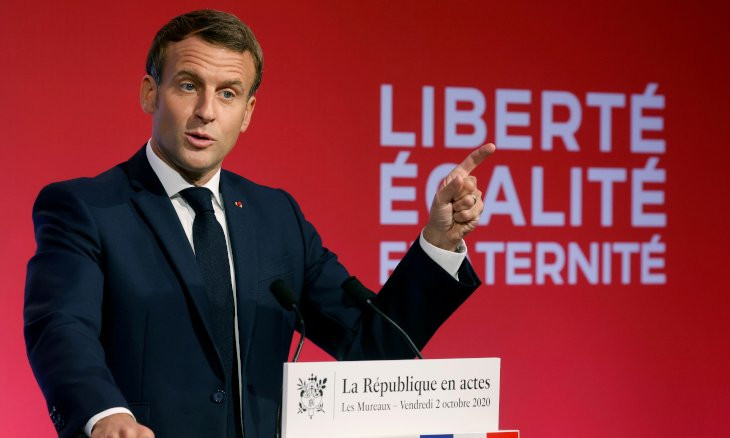Turkey-allied French Muslim groups refuse to sign Macron's anti-extremism charter
Three Muslim groups in France, two of which are catering to citizens of Turkish origin, have announced that they will not sign up to an anti-extremism charter championed by President Emmanuel Macron. The French Council of the Muslim Faith (CFCM), the umbrella grouping for France's Muslim groups, slammed this “unilateral” move, saying it will lead to “division” among Muslims in the country.
Duvar English
Three groups in the French Council of the Muslim Faith (CFCM), the umbrella grouping for France's Muslim groups, jointly announced on Jan. 20 evening that they will not sign up to an anti-extremism charter proposed by President Emmanuel Macron.
The Committee for Coordination of Turkish Muslims in France (CCMTF) and the Milli Görüş Islamic Confederation (CMIG) -- both catering to citizens of Turkish origin -- as well as the Faith and Practice movement, said that they were particularly concerned over the way the charter defines foreign interference in religion and political Islam.
The three groups' refusal to sign the charter was slammed by the CFCM. "Through these repetitive actions, the groups... all risk being held responsible for this situation of division," AFP news agency quoted CFCM president Mohamed Moussaoui as saying on Jan. 21.
This refusal "is not likely to provide reassurance... on the state of the representative bodies of the Muslim religion," he added.
The Milli Görüş, a pan-European movement for the Turkish diaspora, is seen as inspired by the ideas of late prime minister Necmettin Erbakan, regarded as the father of political Islam in Turkey and President Recep Tayyip Erdoğan's mentor.
The CFCM, made up of nine groups, was founded 20 years ago to enable dialogue between the French government and the Muslim community. After weeks of debates, five of the nine groups announced that they signed up to the charter.
A French government source told AFP that the three groups' refusal would not weaken the process, adding that "the masks are coming off." "An important clarification is being made," the source said.
Macron proposed the charter towards the end of 2020 after a teacher was beheaded outside his school. He had shown pupils cartoons of the prophet Mohammed as part of a free-speech lesson.

 Turkey accuses Macron of supporting hate crimes with his new plan against 'Islamist separatism'Diplomacy
Turkey accuses Macron of supporting hate crimes with his new plan against 'Islamist separatism'Diplomacy A beheaded French teacher and a Muslim perpetratorWorld
A beheaded French teacher and a Muslim perpetratorWorld